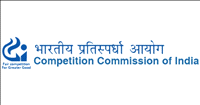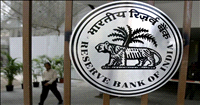USAID grant for 3 Indian companies for sharing low-cost innovations with African countries
01 Nov 2013
The United States Agency for International Development (USAID), a US government agency, has announced three new partnerships to share successful low-cost agricultural innovations and technologies from India with African countries.
USAID has granted financial awards to three Indian organisations through its India-Africa Agriculture Innovations Bridge Programme, aimed at sharing Indian innovations with African countries for increased food security and nutrition under the 'Feed the Future' initiative of the US government.
The technologies to be shared were developed by Indian innovators and include a low-cost tractor, an organic fertilizer, and a solar dryer. All were devised to increase farmers' agricultural yields and incomes by mechanising their operations, fertilizing depleted soils, and preventing post-harvest losses, USAID said in a release.
USAID, in partnership with Indian non-profit organisation Society for Research and Initiatives for Sustainable Technologies and Institutions (SRISTI) will transfer three types of low-cost mechanisation and processing equipment to Kenya. Indian and African organisations will demonstrate new technologies and promote local manufacturing to ensure long-term sustainability.
In partnership with Indian company AquAgri Processing Private Limited, USAID will improve agriculture production by promoting African farmers' use of organic fertilizer made out of a seaweed extract.
Over the next three years, the company will develop a fertiliser concentrate and powder to export and market to at least seven African countries. Public and private sector entities in Africa will conduct trials to ensure the fertilizer's effectiveness on African crops.
USAID has also partnered with Indian non-profit organisation Science for Society to introduce Solar Conduction Dryers (SCD) in Africa for reduction of post-harvest losses.
SCD, a solar powered food dehydrator, reduces moisture content in food crops to extend their shelf life up to one year. With the drying process nutrients in food are better retained along colour, flavour, and hygiene than open-sun drying.
This unique low-cost Indian innovation allows electricity-free solution for preservation of food in some environments where ready access to electricity is not available.






























